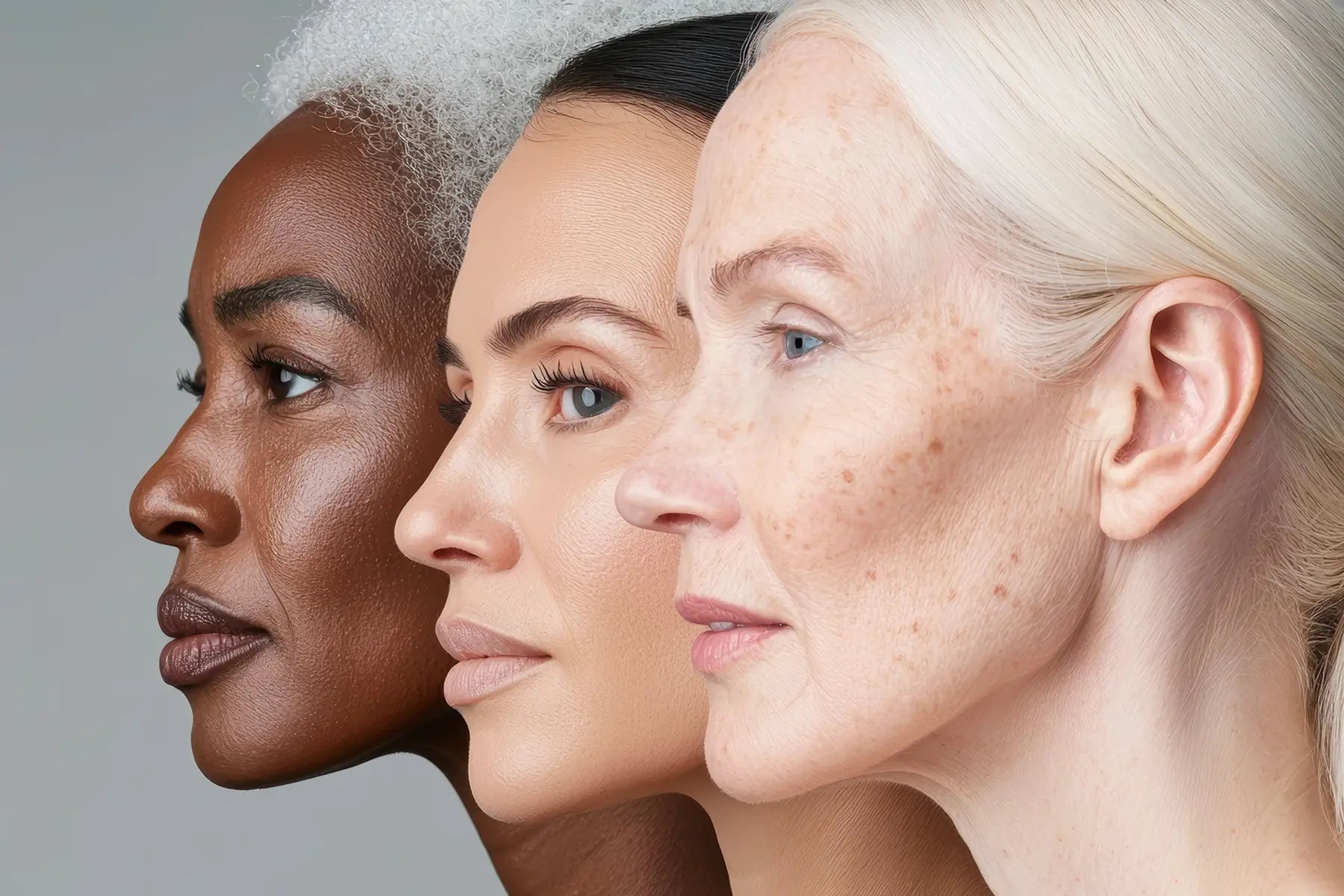Even if you meticulously follow a skincare routine and use the best products, you might still experience skin problems if you don't address underlying internal imbalances. Factors such as stress, diet, and hormonal changes can significantly impact your skin's health. It's essential to consider these factors alongside your external skincare regimen to achieve long-lasting results.
–––––––––––––
Are you frustrated by skin that simply refuses to glow no matter what you do? Have you tried products and treatments to improve skin health and beauty, but come up short despite your best efforts? A number of factors may be working against you: the wrong skincare products, an inconsistent skincare routine, and even stress, can cause problems.
What? You say you use the right products, keep a consistent routine, and are good at managing your stress? If so, the problem with your skin may be in your tummy. Surprised? Don’t be. Experts say your gut microbiome has an impact on a variety of skin conditions, including aiding in wound healing.
Microbiomes: You Have 2
The phrase gut microbiome refers to the collection of viruses, bacteria, and fungi, that live in our intestines. It aids in digestion, nutrient absorption and more. The skin has a microbiome of its own too. It is the first line of defence against external factors. When the two work in concert, all is well.
Studies have shown that an imbalance in the microbiome (dysbiosis) can impact skin, leading to dandruff, acne, eczema, atopic dermatitis, and cancer. It may also be a key factor in:
- Psoriasis
- Seborrheic dermatitis
- Rosacea
- Vitiligo
6 Ways to Improve Gut Health and Help Skin Glow
Disruption in the gut doesn’t have to be a way of life. In fact, there are several simple steps you can take at home to support your gut health:
- Prioritise Probiotics: Probiotics are beneficial bacteria that reside in your gut. Incorporate into your diet foods rich in probiotics such as yogurt, kefir, sauerkraut, and kimchi. If you struggle with dairy, consider fermented plant-based alternatives such as tempeh or kombucha.
- Fibre is Key: Fibre helps regulate digestion and promotes healthy bowel movements. Consume plenty of fruits, vegetables, whole grains, and legumes. Aim for a balanced diet that includes both soluble and insoluble fibre.
- Stay Hydrated: Adequate hydration is essential for optimal digestion. Drink plenty of water throughout the day to keep your digestive system functioning smoothly.
- Manage Stress: Stress can negatively impact gut health. Practice relaxation techniques such as meditation, deep breathing, or yoga to reduce stress and improve digestion.
- Limit Processed Foods: Processed foods often contain unhealthy additives and preservatives that can disrupt gut balance. Opt for whole, unprocessed foods whenever possible.
- Consider Supplements: If you're struggling with gut issues, supplements such as probiotics or enzymes may be beneficial. However, it's essential to consult with a healthcare professional before starting any new supplements.
Maintaining a healthy gut takes time and consistency. By incorporating the simple habits above into your daily routine, you can support your digestive health, improve your overall wellbeing, and enhance your skin’s radiance.







